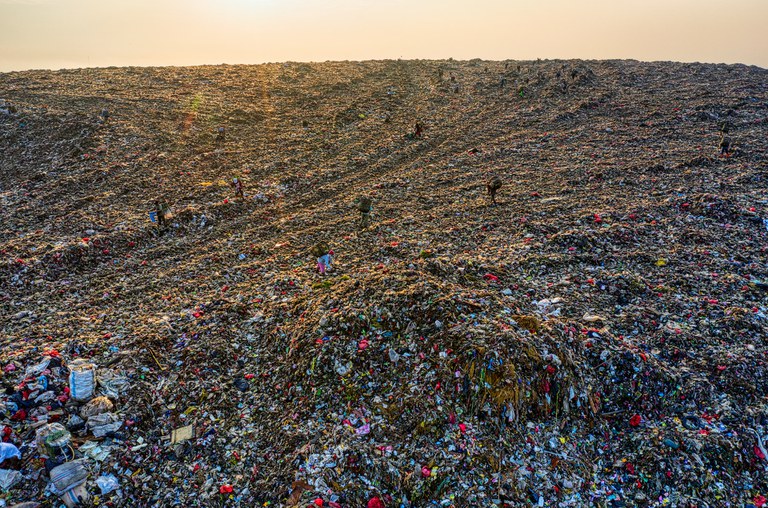Explainer: The EU's new proposal - Making producers responsible for the full lifecycle of textile products
In order to cope with the mass of textile waste generated mainly by fast fashion, the EU has now formulated a series of regulations to tackle the problem of the enormous and harmful impact of textile waste.
The EU initiative aims to accelerate the development of the separate collection, sorting, reuse and recycling of textiles sector in the EU in line with the EU Sustainable and Circular Textiles Strategy. Find out everything you need to know about the regulations in our explainer.
What is the purpose of the Commission's proposed rules on textile products?
The purpose of the proposed rules is to make producers responsible for the full lifecycle of textile products and to support the sustainable management of textile waste across the EU. This initiative aims to accelerate the development of separate collection, sorting, reuse, and recycling of textiles, in line with the EU Strategy for Sustainable and Circular Textiles.
What is Extended Producer Responsibility (EPR) and how does it apply to textiles?
Extended Producer Responsibility (EPR) is a concept where producers are made responsible for the costs and management of the waste generated from their products. The Commission is proposing to introduce mandatory and harmonized EPR schemes for textiles in all EU Member States. Producers will bear the cost of managing textile waste, which will also give them incentives to reduce waste and increase the recyclability of textile products by developing better products from the start.
How will producers' payments to the EPR scheme be determined?
The amount manufacturers pay to the EPR system will be adjusted based on the environmental performance of the textiles, a principle known as "ecomodulation."
How will the proposed rules encourage separate collection of textiles?
The proposed rules will make it easier for Member States to implement the requirement to collect textiles separately from 2025. Producers' contributions to the EPR scheme will finance investments in separate collection, sorting, re-use, and recycling capacities. The aim is to ensure that used textiles are sorted for reuse, and what cannot be reused is directed to recycling as a priority.
How does the Commission's proposal address the issue of illegal exports of textile waste and ensure environmentally sound management of waste shipments?
The new law would clarify what constitutes waste and what is considered reusable textiles, to stop the practice of exports of waste disguised as being done for reuse. This will complement measures under the proposal for a new regulation on waste shipments that will ensure that shipments of textile waste only take place when there are guarantees that the waste is managed in an environmentally sound manner.
How will the proposed rules benefit social enterprises and the market for second-hand textiles?
Social enterprises active in the collection and treatment of textiles will benefit from increased business opportunities and a bigger market for second-hand textiles. The increased availability of used textiles through improved waste management is expected to create local jobs and save money for consumers in the EU and beyond.
What is the next step for the Commission's proposal on the Waste Framework Directive?
The Commission's proposal on a targeted amendment of the Waste Framework Directive will now be considered by the European Parliament and the Council in the ordinary legislative procedure. The proposal will go through a review and decision-making process before it can be adopted as law.
Are there critical voices on the EU Sustainable and Circular Textiles Strategy?
The European Garment and Textile Association (Euratex) argues that Europe could be pushed out of the fashion market by the regulations. In addition, the regulations and restrictions would not take into account the current economic challenges caused by high energy prices, loss of consumer confidence and assertive trading partners.

